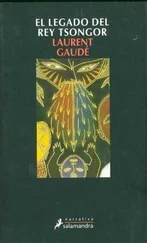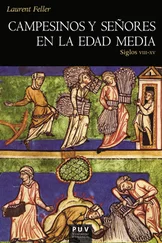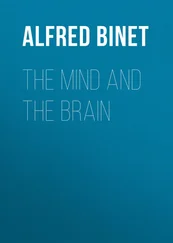Laurent Binet - HHhH
Здесь есть возможность читать онлайн «Laurent Binet - HHhH» весь текст электронной книги совершенно бесплатно (целиком полную версию без сокращений). В некоторых случаях можно слушать аудио, скачать через торрент в формате fb2 и присутствует краткое содержание. Город: New York, Год выпуска: 2012, ISBN: 2012, Издательство: Farrar, Straus and Giroux, Жанр: Историческая проза, на английском языке. Описание произведения, (предисловие) а так же отзывы посетителей доступны на портале библиотеки ЛибКат.
- Название:HHhH
- Автор:
- Издательство:Farrar, Straus and Giroux
- Жанр:
- Год:2012
- Город:New York
- ISBN:978-0-374-16991-6
- Рейтинг книги:3 / 5. Голосов: 1
-
Избранное:Добавить в избранное
- Отзывы:
-
Ваша оценка:
- 60
- 1
- 2
- 3
- 4
- 5
HHhH: краткое содержание, описание и аннотация
Предлагаем к чтению аннотацию, описание, краткое содержание или предисловие (зависит от того, что написал сам автор книги «HHhH»). Если вы не нашли необходимую информацию о книге — напишите в комментариях, мы постараемся отыскать её.
HHhH — читать онлайн бесплатно полную книгу (весь текст) целиком
Ниже представлен текст книги, разбитый по страницам. Система сохранения места последней прочитанной страницы, позволяет с удобством читать онлайн бесплатно книгу «HHhH», без необходимости каждый раз заново искать на чём Вы остановились. Поставьте закладку, и сможете в любой момент перейти на страницу, на которой закончили чтение.
Интервал:
Закладка:
The meeting lasted barely two hours. Two hours to settle what were essentially legal questions: What should be done with half-Jews? And with quarter-Jews? With Jews who’d been decorated in the First World War? With Jews married to German women? Should these men’s Aryan widows be compensated by giving them a pension? As in all meetings, the only decisions that are really made are those decided beforehand. In fact, for Heydrich, it was just a question of informing all the Reich ministries that they were going to have to work together with one objective in mind: the physical elimination of all Europe’s Jews.
I have in front of me a list distributed by Heydrich to all the participants at the conference that details the number of Jews to be “evacuated,” country by country. The list is divided in two parts. The first includes all the countries of the Reich, among which we notice that Estonia is already judenfrei , while the Government General (that is, Poland) still has more than two million Jews. The second part, giving an idea of how optimistic the Nazis still were in early 1942, brings together the satellite countries (Slovakia: 88,000 Jews; Croatia: 40,000 Jews) and allied countries (Italy, including Sardinia: 58,000 Jews), but also neutral countries (Switzerland: 18,000; Sweden: 8,000; Turkey: 55,500; Spain: 6,000) or even enemies (the only two remaining in Europe at this time: the USSR—already invaded to a great extent—with five million Jews, more than half of them in occupied Ukraine; and Britain, with 330,000 Jews, which was a long way from being invaded). So the plan was that every country in Europe would be forced or persuaded to deport its Jews. The total was written at the bottom of the page: more than eleven million. The mission would be half accomplished.
Eichmann has described what happened after the conference. The ministerial representatives having left, he and Heydrich were alone with “Gestapo” Müller. They moved through to an elegant wood-paneled drawing room. Heydrich poured himself a brandy, which he sipped while listening to classical music (Schubert, I believe), and the three men each smoked a cigar. According to Eichmann, Heydrich was in an excellent mood.
161
Raul Hilberg died yesterday. He was the leader of the “functionalists,” those historians who believe the extermination of the Jews was not premeditated but dictated by circumstances. This school of thought is in direct opposition to the “intentionalists,” who maintain it was all clearly and definitely planned from the beginning—that is, from the writing of Mein Kampf in 1924.
To mark Hilberg’s death, Le Monde published extracts from an interview he gave in 1994, in which the broad outlines of his theory are recapitulated:
I believe that the Germans did not know, at the beginning, what they were doing. It’s as if they were driving a train whose general direction was toward a growing violence against Jews, but whose precise destination was uncertain. Let’s not forget that Nazism was more than a political party: it was a movement that had to keep going forward, without ever stopping. Confronted with a completely unprecedented task, German bureaucracy didn’t know what to do. And that’s where Hitler’s role is important. Someone at the top had to give the green light to the naturally conservative bureaucrats.
One of the intentionalists’ main pieces of evidence is this phrase of Hitler’s, taken from a public speech made in January 1939: “If the international Jewish financiers in and outside Europe should succeed in plunging the nations once more into a world war, the result will not be the Bolshevization of the earth, and thus the victory of Jewry, but the annihilation of the Jewish race in Europe.” Conversely, the most revealing clue in support of the functionalists is that, for a long time, the Nazis were genuinely seeking out territories to which they might deport the Jews: Madagascar, the Arctic Ocean, Siberia, Palestine. On more than one occasion, Eichmann even met with some militant Zionists. But the hazards of war would force them to abandon all these plans. Most notably, the transportation of the Jews to Madagascar could not take place until the Germans had control of the seas—in other words, until the war with Great Britain was over. The search for more radical solutions would finally be precipitated by the turning of the war in the East. Even if they didn’t admit it, the Nazis knew their eastern conquests were in peril. They did not fear the worst—because nobody in 1942 imagined that the Red Army would one day invade Germany and penetrate all the way to Berlin—but the powerful Soviet resistance forced them to acknowledge that they might lose the occupied territories. Consequently, they had to move quickly. So it was, one thing leading to another, that the Jewish question took on an industrial dimension.
162
A freight train screeches to a halt. At the end of the tracks is a gate surmounted by a tower, with a brownstone wing on either side. Above, you hear the cawing of crows. The gate opens. You are now entering Auschwitz.
163
This morning, Heydrich receives an indignant letter from Himmler. It concerns some five hundred young Germans arrested by the Hamburg police because they were fans of swing, that degenerate foreign dance accompanied by Negro music.
I will oppose any half measures in this matter. All the ringleaders are to be sent to a concentration camp. First of all, these youths will get a good thrashing there. They will stay in the camp quite a long time—two or three years. Obviously they will no longer have the right to study. Only through brutal actions can we stop the spread of these dangerous Anglophile trends.
Heydrich will actually deport about fifty of these youngsters. Just because the Führer has entrusted him with the historic task of getting rid of every single Jew in Europe does not mean he’s going to neglect his other duties.
164
Goebbels’s diary, January 21, 1942:
Heydrich has now installed his new government of the Protectorate. Hacha has made the declaration of solidarity with the Reich that was requested of him. Heydrich’s policy in the Protectorate is truly a model one. He mastered the crisis there with ease. As a result, the Protectorate is now in the best of spirits, quite in contrast to other occupied or annexed areas.
165
Hitler is giving another of his interminable political soliloquies to a servile, silent audience. His diatribe touches on the situation in the Protectorate:
The Czechs were taking Neurath for a ride! Another six months of that regime and production would have fallen by twenty-five percent! Of all the Slavs, the Czech is the most dangerous—because he’s a worker. He is disciplined, methodical; he knows how to conceal his intentions. But they will knuckle down now because they know we are violent and merciless.
It’s his way of saying that he is very pleased with the job Heydrich is doing.
166
Not long afterward, Heydrich goes to see Hitler in Berlin. So Heydrich finds himself in the presence of the Führer—or perhaps it’s the other way around. Hitler declares: “We will clean up the Czech mess if we stick to a consistent policy with them. A lot of Czechs have Germanic origins, so it’s not impossible to re-Germanize them.” This speech, too, is a way of complimenting Heydrich on his work. The Blond Beast is—along with Speer (though for very different reasons)—the colleague Hitler most respects.
With Speer, the Führer can talk of things other than politics, war, Jews. He can discuss music, painting, literature, and he can give substance to Germania—the future Berlin whose plans they’ve drawn up together, and which his brilliant architect is responsible for building. For Hitler, Speer is a breath of fresh air, a window in the National Socialist labyrinth (the Führer’s creation and now his prison), giving him a view of the outside world. True, Speer is a card-carrying and utterly devoted Nazi. Since being named minister of armaments (in addition to his title of official architect), he uses all his intelligence and talent to improve production. His loyalty and efficiency are above suspicion. But that’s not why Hitler prefers him. If it were only a matter of loyalty, then Himmler would be unbeatable. In fact, he’d be unbeatable if it were just a matter of efficiency too. But Speer, in his well-cut suits, has so much more class and style. He is one of those intellectuals whom Hitler, the failed artist and former Munich tramp, ought to loathe. But Speer gives him something that no one else has given him: the friendship and admiration of a brilliant man at ease in any social situation.
Читать дальшеИнтервал:
Закладка:
Похожие книги на «HHhH»
Представляем Вашему вниманию похожие книги на «HHhH» списком для выбора. Мы отобрали схожую по названию и смыслу литературу в надежде предоставить читателям больше вариантов отыскать новые, интересные, ещё непрочитанные произведения.
Обсуждение, отзывы о книге «HHhH» и просто собственные мнения читателей. Оставьте ваши комментарии, напишите, что Вы думаете о произведении, его смысле или главных героях. Укажите что конкретно понравилось, а что нет, и почему Вы так считаете.












